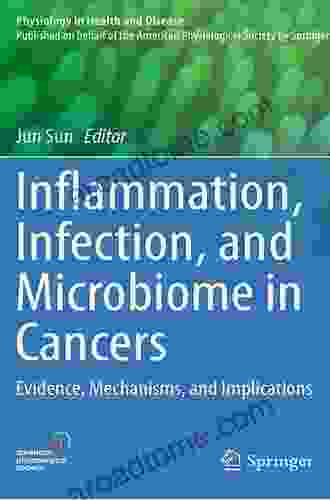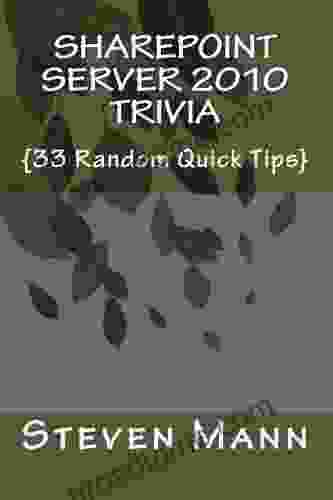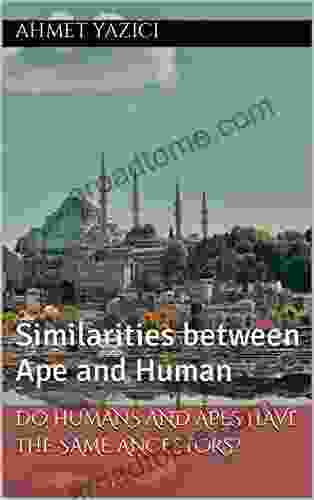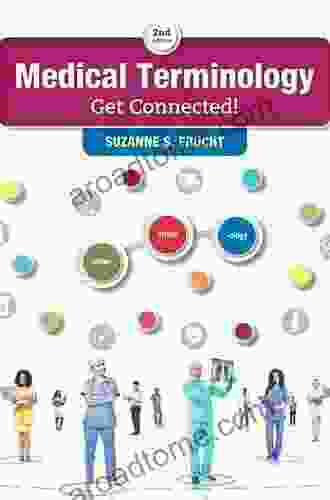Evidence Mechanisms And Implications Physiology In Health And Disease

Physiology is the scientific study of the functions and mechanisms of living organisms. It encompasses a vast range of topics, from the molecular level to the whole-body level, and has profound implications for our understanding of health and disease.
5 out of 5
| Language | : | English |
| File size | : | 15792 KB |
| Text-to-Speech | : | Enabled |
| Screen Reader | : | Supported |
| Enhanced typesetting | : | Enabled |
| Print length | : | 973 pages |
This book provides a comprehensive overview of the field of physiology, with a focus on the evidence-based understanding of physiological mechanisms and their implications for health and disease. It is written by a team of leading experts in the field and is designed to be accessible to students, researchers, and healthcare professionals alike.
Evidence
The evidence-based approach is central to physiology. This means that all claims about physiological mechanisms must be supported by rigorous scientific evidence.
There are a variety of methods that can be used to gather evidence about physiological mechanisms. These methods include:
- Observational studies: These studies observe the relationship between different factors, such as diet and disease, without intervening.
- Experimental studies: These studies test the effects of a specific intervention, such as a drug or a surgical procedure.
- Animal studies: These studies are conducted on animals to model human physiology and disease.
- Cell culture studies: These studies are conducted on cells in a laboratory to study the basic mechanisms of cell function.
By combining evidence from these different sources, physiologists can build a comprehensive understanding of the mechanisms that govern our bodies.
Mechanisms
Physiological mechanisms are the processes that control the function of living organisms. These mechanisms can be divided into two broad categories:
- Homeostatic mechanisms: These mechanisms are responsible for maintaining the body's internal environment within a narrow range. For example, the body's temperature is regulated by a homeostatic mechanism that balances heat production and heat loss.
- Control mechanisms: These mechanisms are responsible for coordinating the body's response to changes in the external environment. For example, the body's blood pressure is regulated by a control mechanism that adjusts the heart rate and blood vessel diameter.
Physiological mechanisms are often complex and involve the interaction of multiple systems. However, by understanding the basic principles of these mechanisms, physiologists can gain insights into the causes and treatment of disease.
Implications
The study of physiology has profound implications for our understanding of health and disease. By understanding the mechanisms that govern our bodies, we can develop strategies to prevent and treat disease.
For example, the discovery of the role of the immune system in fighting infection has led to the development of vaccines and antibiotics. The understanding of the role of the nervous system in controlling movement has led to the development of treatments for Parkinson's disease and stroke.
Physiology is a rapidly growing field, and new discoveries are being made all the time. As our understanding of physiology continues to grow, we can expect to see even more advances in the prevention and treatment of disease.
Physiology is a fascinating and complex field of study that has profound implications for our understanding of health and disease. By understanding the evidence-based understanding of physiological mechanisms, we can gain insights into the causes and treatment of disease and improve the quality of our lives.
References
- Guyton, A. C., & Hall, J. E. (2016). Textbook of medical physiology (13th ed.). Philadelphia: Elsevier.
- Boron, W. F., & Boulpaep, E. L. (2017). Medical physiology (3rd ed.). Philadelphia: Elsevier.
- Silbernagl, S., & Despopoulos, A. (2018). Color atlas of physiology (8th ed.). Stuttgart: Thieme.
5 out of 5
| Language | : | English |
| File size | : | 15792 KB |
| Text-to-Speech | : | Enabled |
| Screen Reader | : | Supported |
| Enhanced typesetting | : | Enabled |
| Print length | : | 973 pages |
Do you want to contribute by writing guest posts on this blog?
Please contact us and send us a resume of previous articles that you have written.
 Book
Book Novel
Novel Page
Page Chapter
Chapter Text
Text Story
Story Genre
Genre Reader
Reader Library
Library Paperback
Paperback E-book
E-book Magazine
Magazine Newspaper
Newspaper Paragraph
Paragraph Sentence
Sentence Bookmark
Bookmark Shelf
Shelf Glossary
Glossary Bibliography
Bibliography Foreword
Foreword Preface
Preface Synopsis
Synopsis Annotation
Annotation Footnote
Footnote Manuscript
Manuscript Scroll
Scroll Codex
Codex Tome
Tome Bestseller
Bestseller Classics
Classics Library card
Library card Narrative
Narrative Biography
Biography Autobiography
Autobiography Memoir
Memoir Reference
Reference Encyclopedia
Encyclopedia Stephanie Ewing
Stephanie Ewing Theodore Millon
Theodore Millon Mark Bryan
Mark Bryan Susie Briscoe
Susie Briscoe A J Gregory
A J Gregory Scott O Lilienfeld
Scott O Lilienfeld Steven Shakespeare
Steven Shakespeare Nathan Lewis
Nathan Lewis Eric Brach
Eric Brach J Richard Elliott
J Richard Elliott Harris O Malley
Harris O Malley Dk
Dk Tanya Stowe
Tanya Stowe Evelyn Dorothy Oliver
Evelyn Dorothy Oliver Tony Campolo
Tony Campolo Steve Wright
Steve Wright Simon Monk
Simon Monk Sarah Mayberry
Sarah Mayberry Joanne Fleisher
Joanne Fleisher Scott A Bollens
Scott A Bollens
Light bulbAdvertise smarter! Our strategic ad space ensures maximum exposure. Reserve your spot today!

 Jaime MitchellSymbolic Algebraic Methods and Verification Methods for Complex Systems:...
Jaime MitchellSymbolic Algebraic Methods and Verification Methods for Complex Systems:...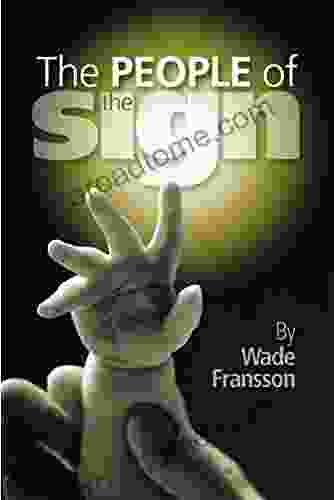
 Michael SimmonsUnveil the Ancient Secrets of Communication: Explore "The People of the Sign"
Michael SimmonsUnveil the Ancient Secrets of Communication: Explore "The People of the Sign" Richard SimmonsFollow ·9k
Richard SimmonsFollow ·9k Terry PratchettFollow ·6.9k
Terry PratchettFollow ·6.9k Ethan GrayFollow ·5.3k
Ethan GrayFollow ·5.3k Danny SimmonsFollow ·2.9k
Danny SimmonsFollow ·2.9k Ryan FosterFollow ·11.7k
Ryan FosterFollow ·11.7k Vladimir NabokovFollow ·16.3k
Vladimir NabokovFollow ·16.3k Isaiah PriceFollow ·12.9k
Isaiah PriceFollow ·12.9k Kenneth ParkerFollow ·13.6k
Kenneth ParkerFollow ·13.6k

 Timothy Ward
Timothy WardSteamy Reverse Harem with MFM Threesome: Our Fae Queen
By [Author...

 Cody Blair
Cody BlairThe Ultimate Guide to Energetic Materials: Detonation and...
Energetic materials are a fascinating and...
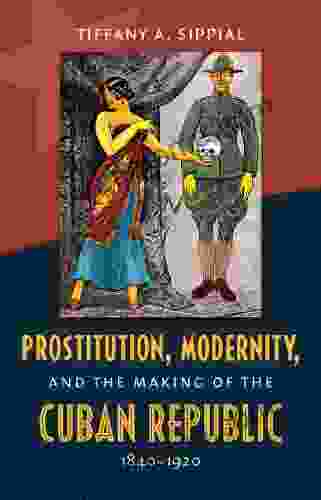
 Kenzaburō Ōe
Kenzaburō ŌeProstitution, Modernity, and the Making of the Cuban...
By Emily A....

 Kirk Hayes
Kirk HayesUnveil the Enchanting World of The Rape of the Lock by...
Alexander Pope's epic...

 Ivan Turgenev
Ivan TurgenevTantric Quest: An Encounter With Absolute Love
Embark on a Tantric Quest to...
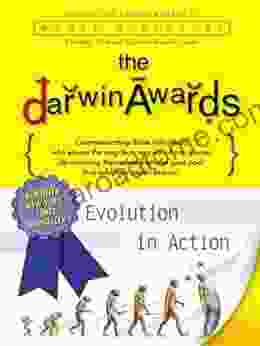
 Gary Reed
Gary ReedThe Darwin Awards: Evolution in Action
The Darwin Awards are a...
5 out of 5
| Language | : | English |
| File size | : | 15792 KB |
| Text-to-Speech | : | Enabled |
| Screen Reader | : | Supported |
| Enhanced typesetting | : | Enabled |
| Print length | : | 973 pages |


